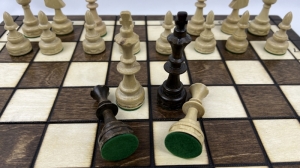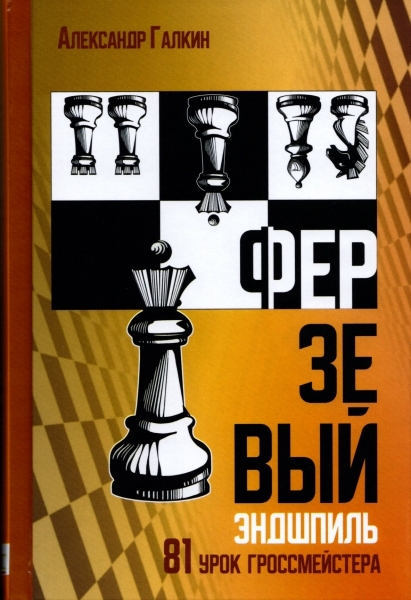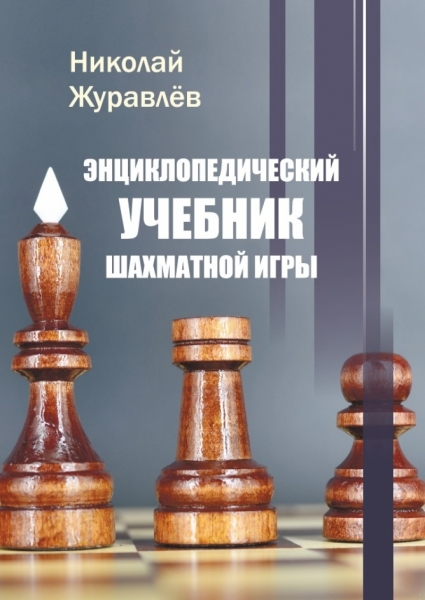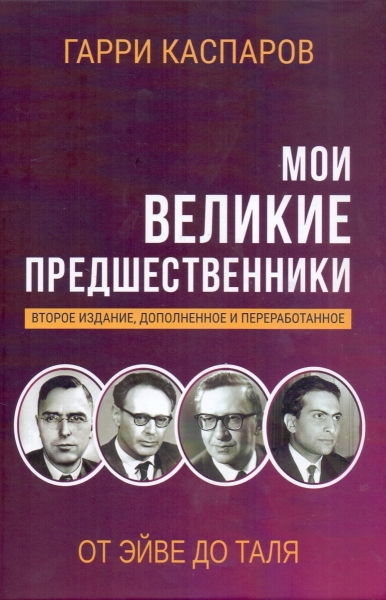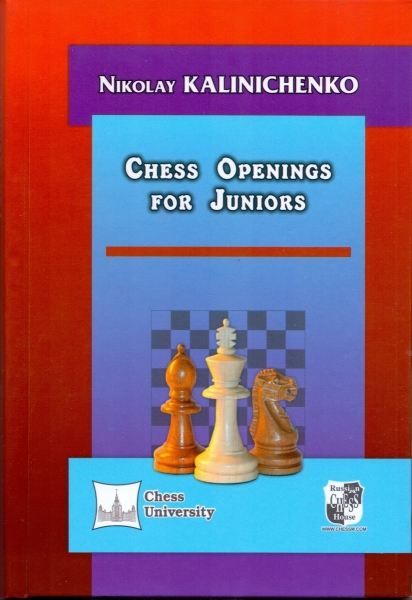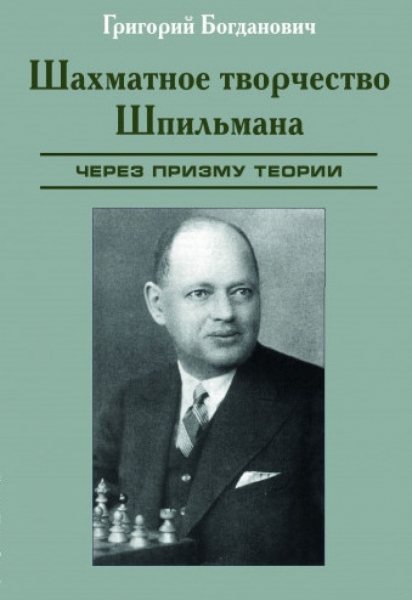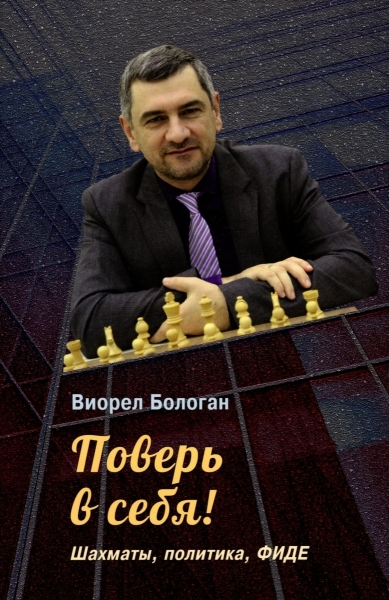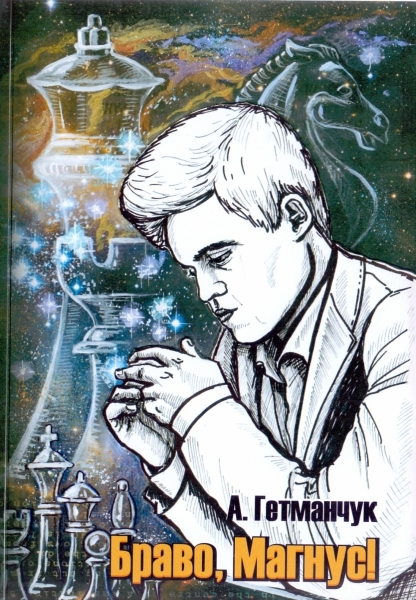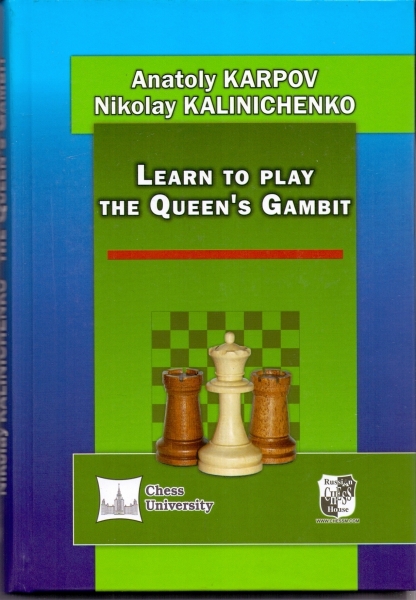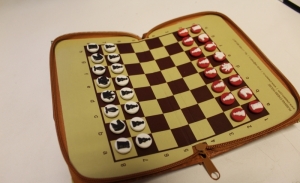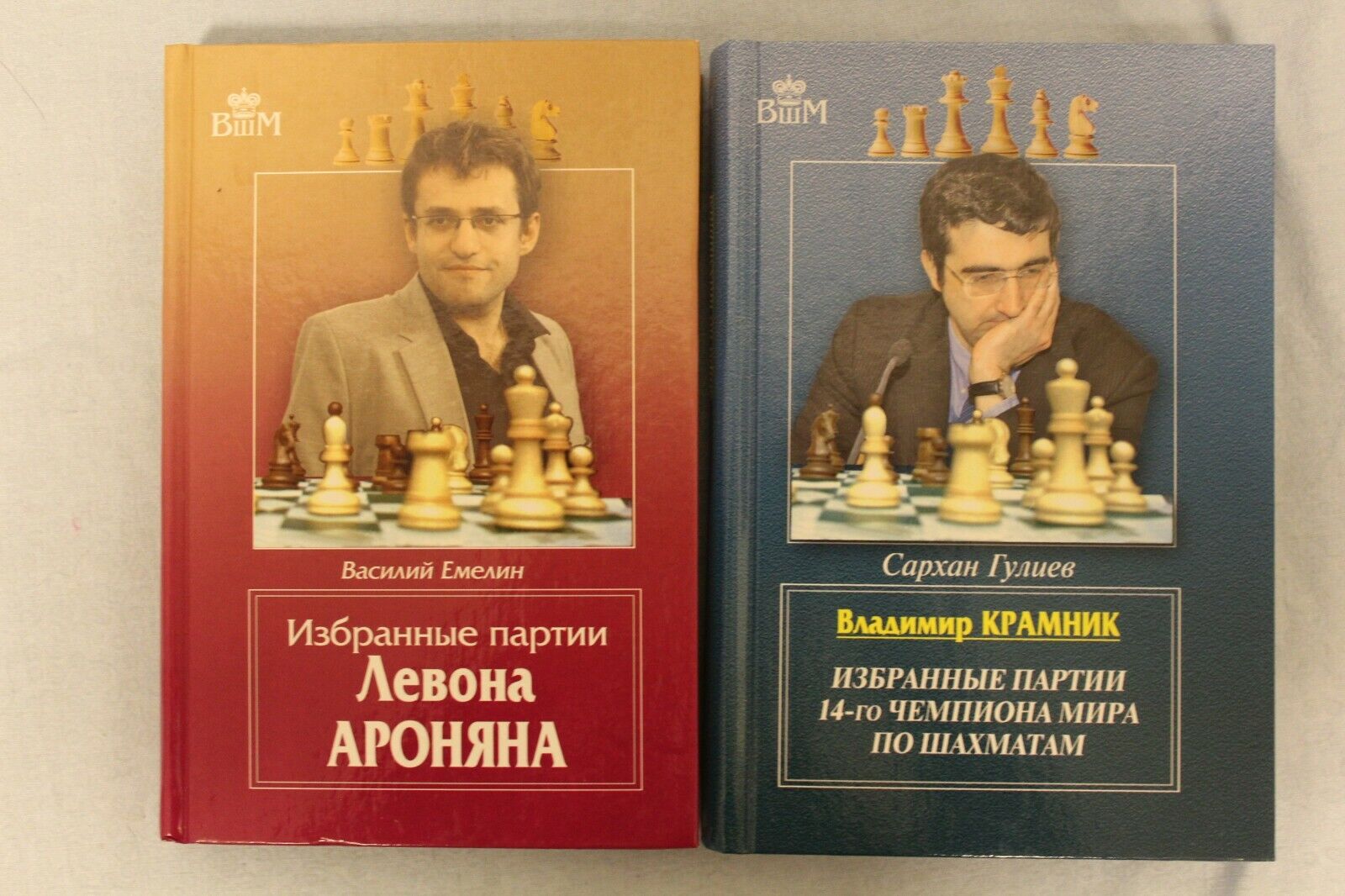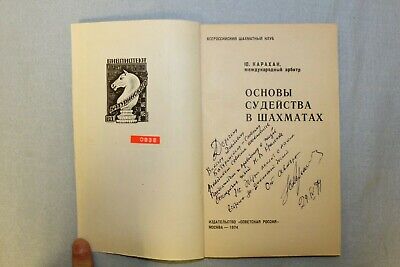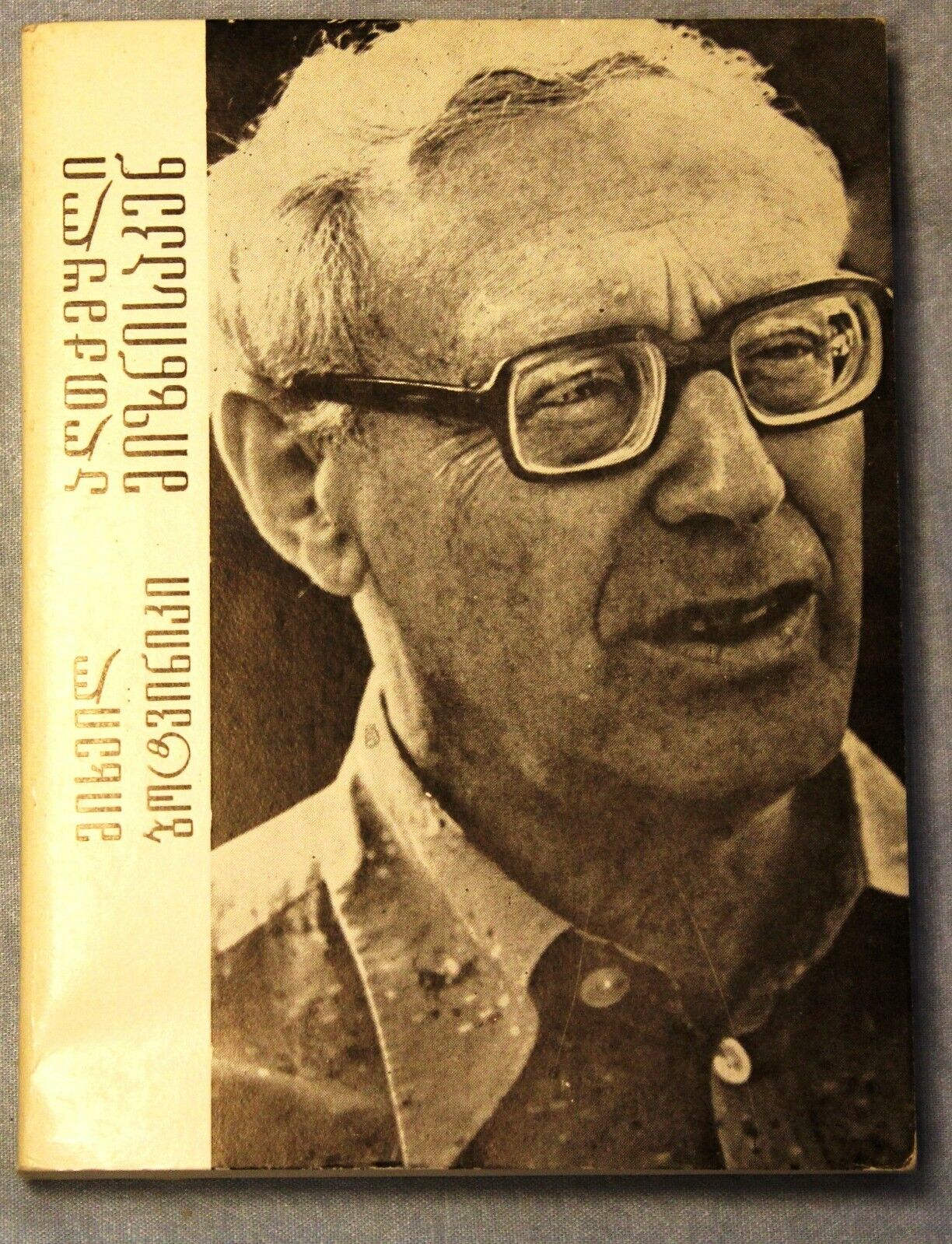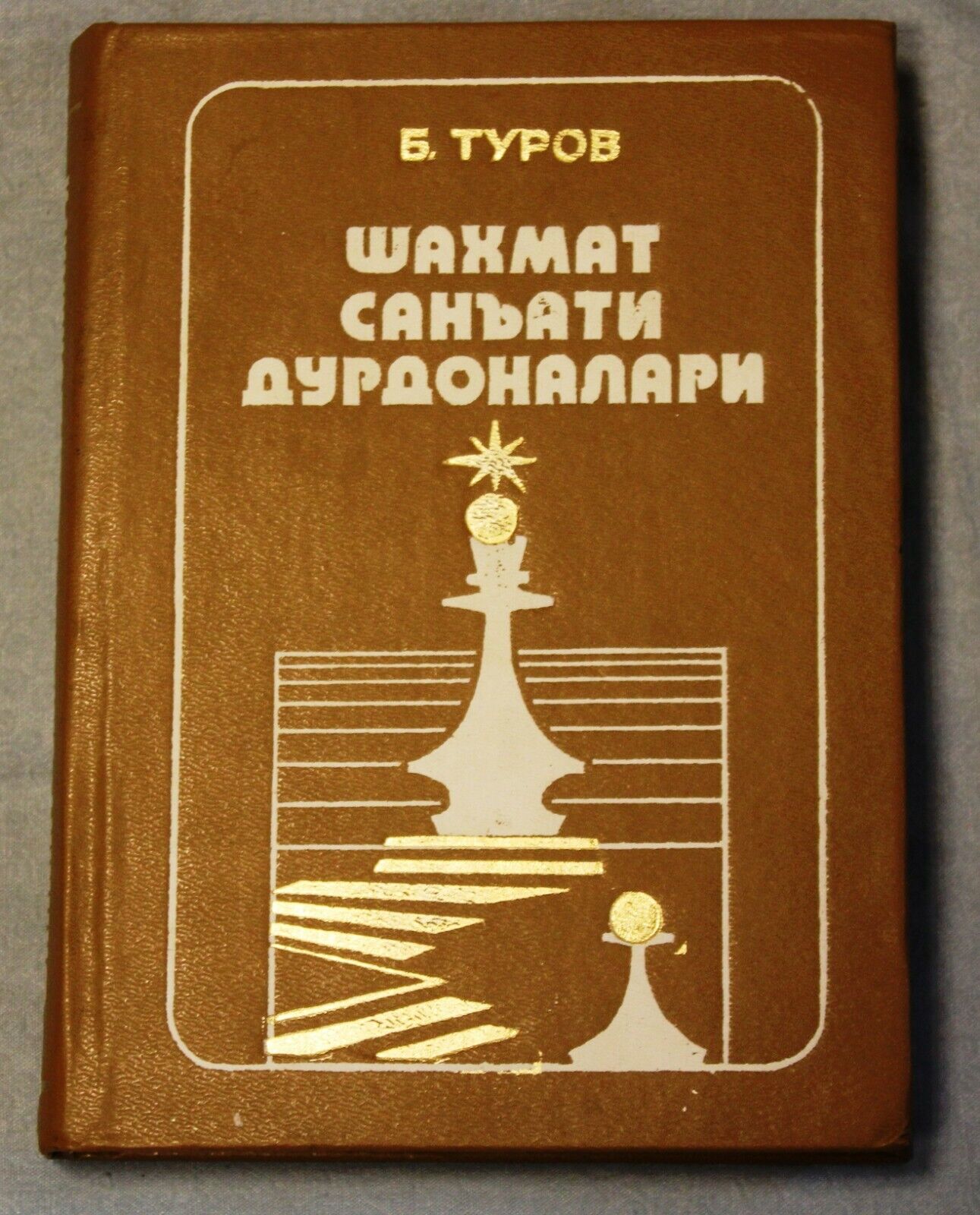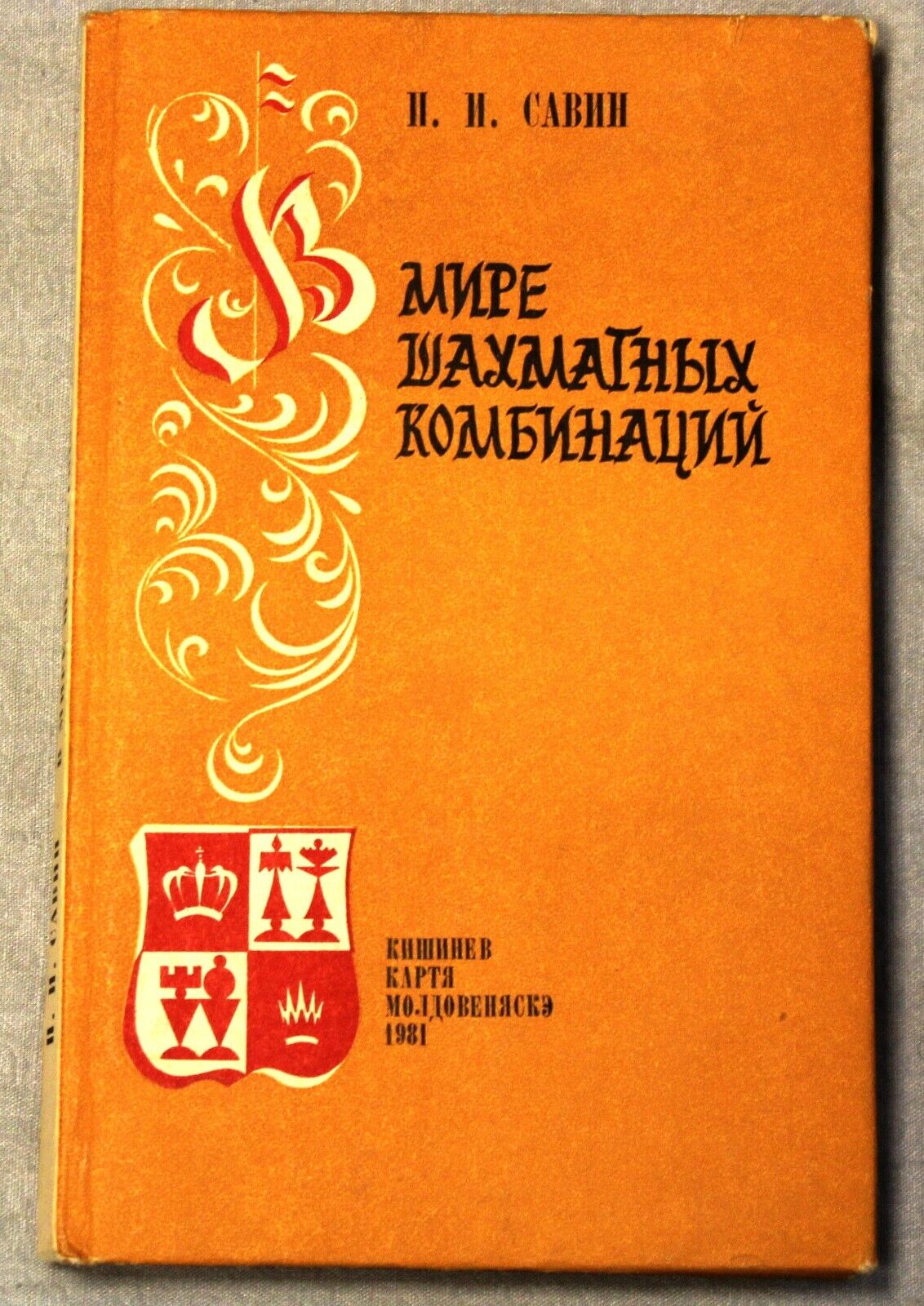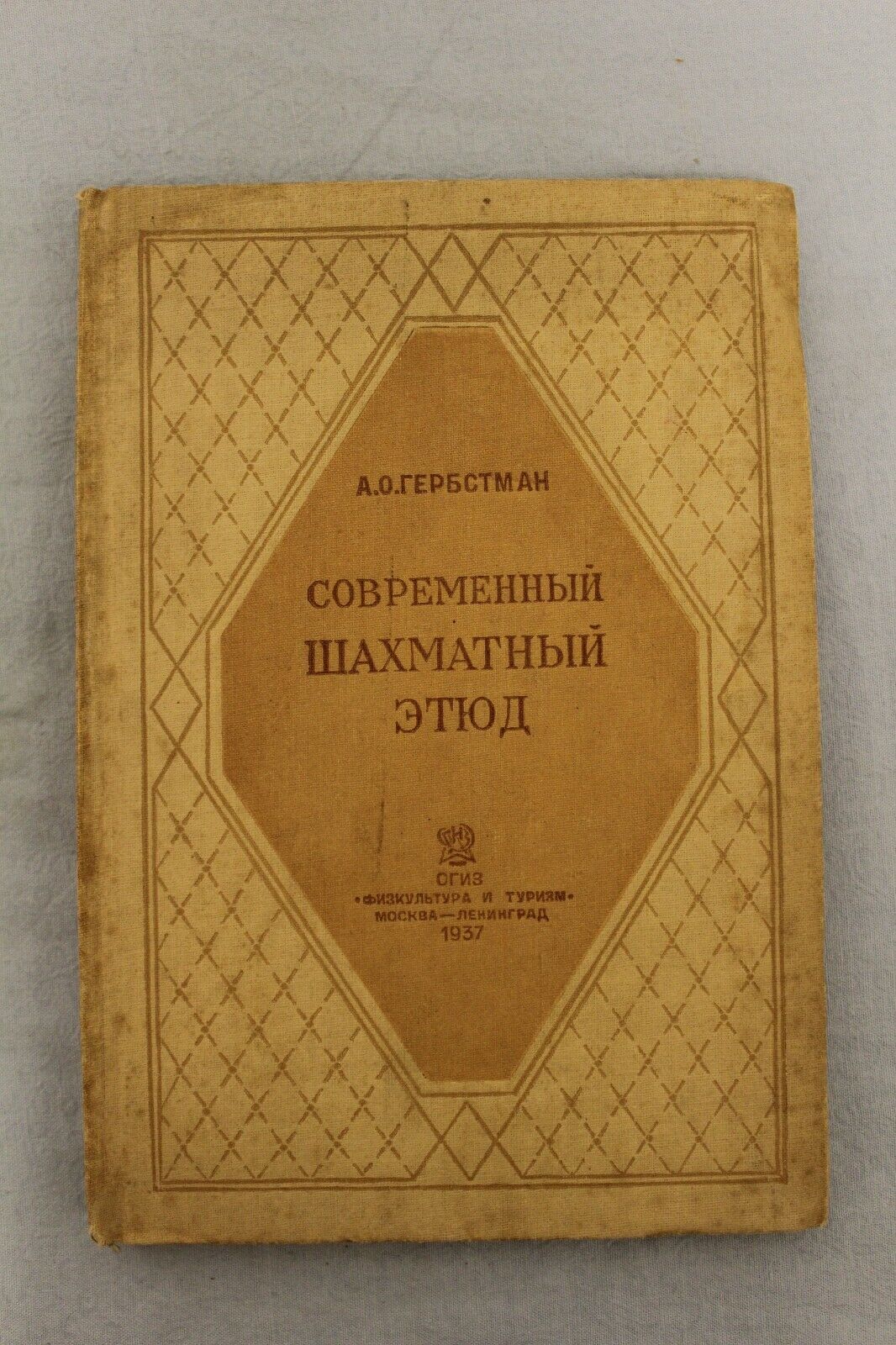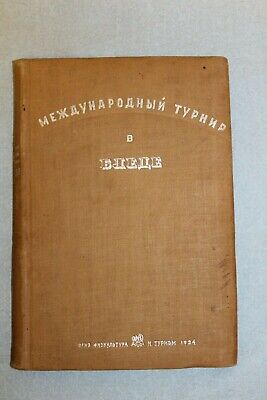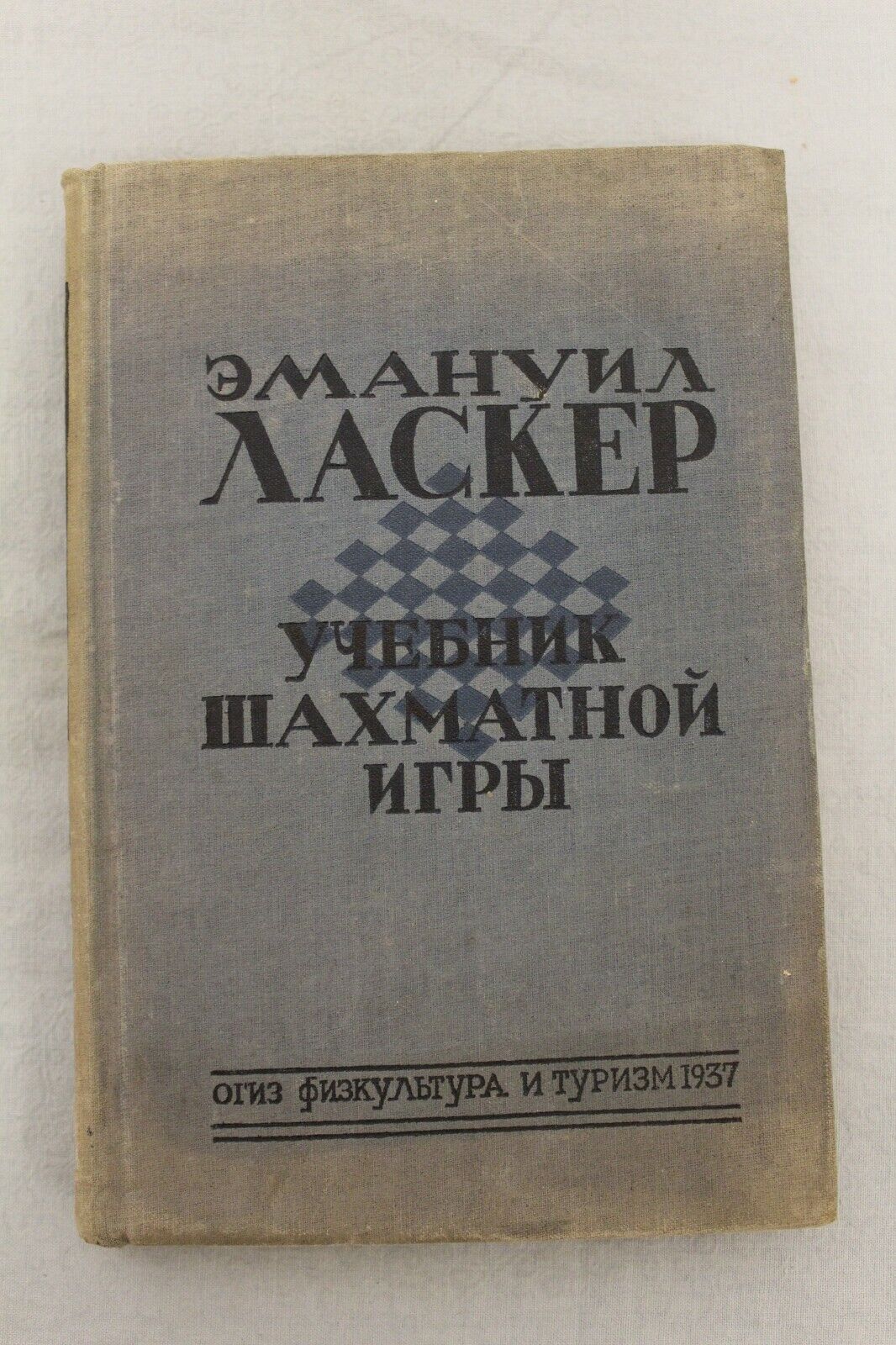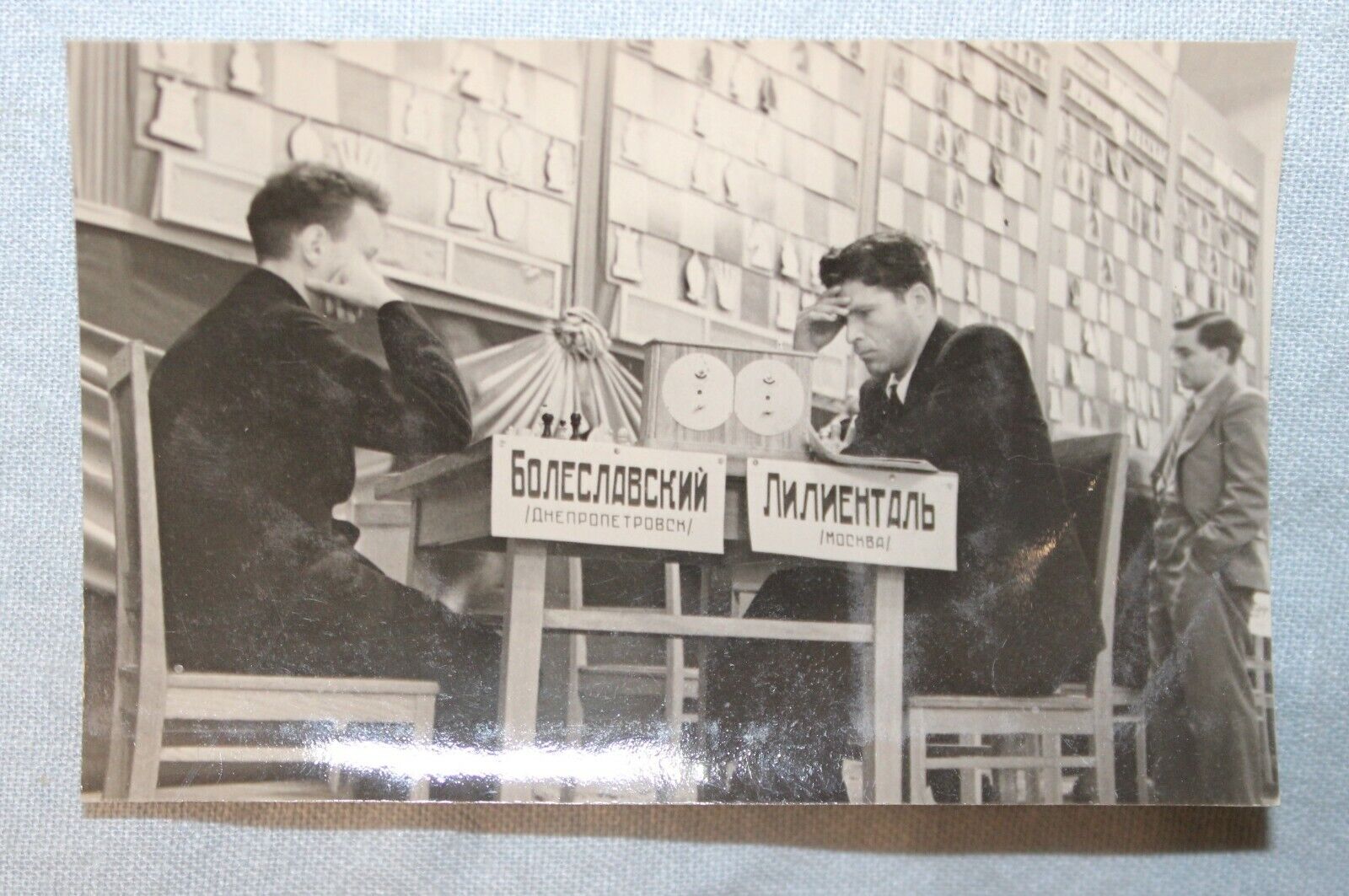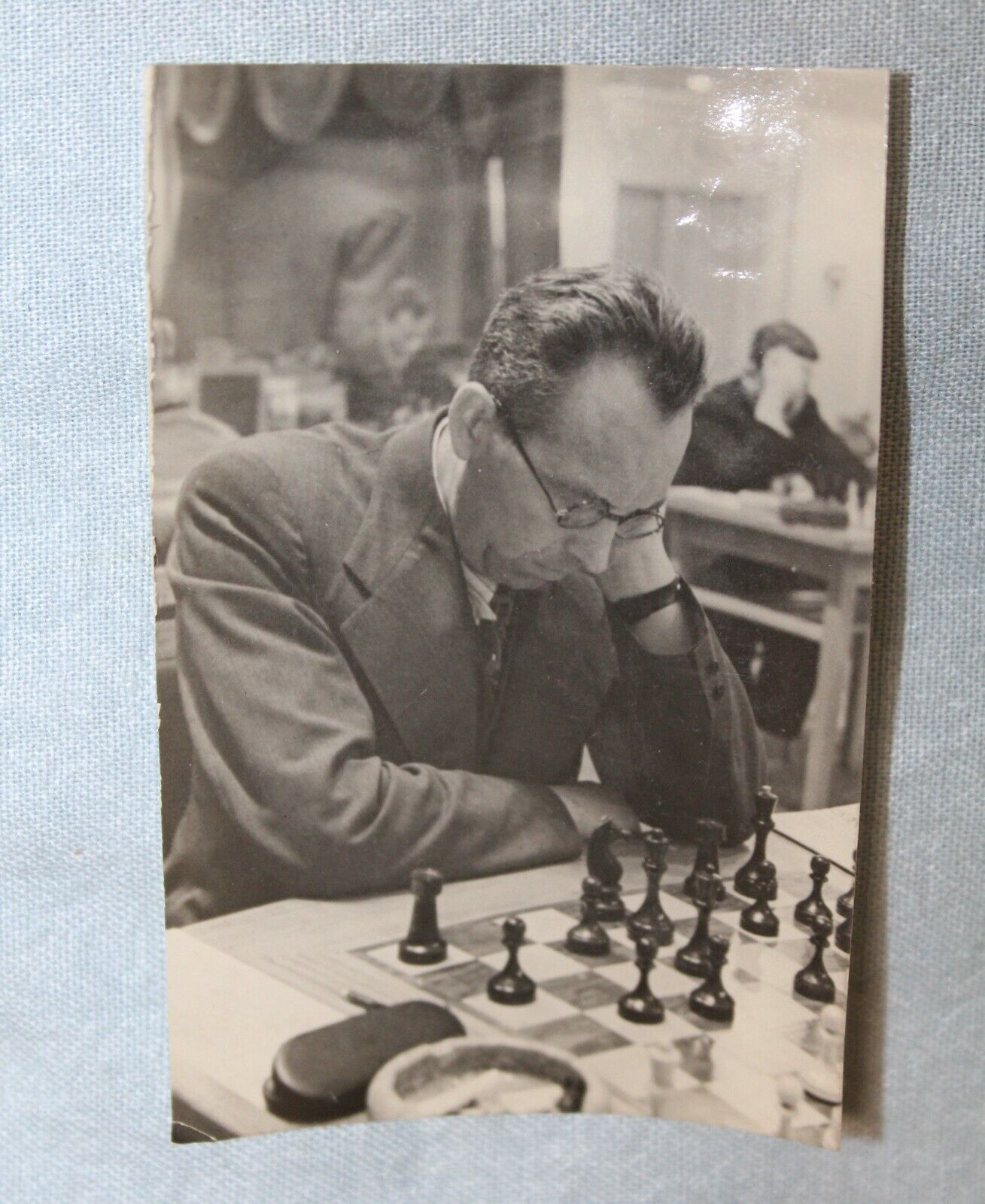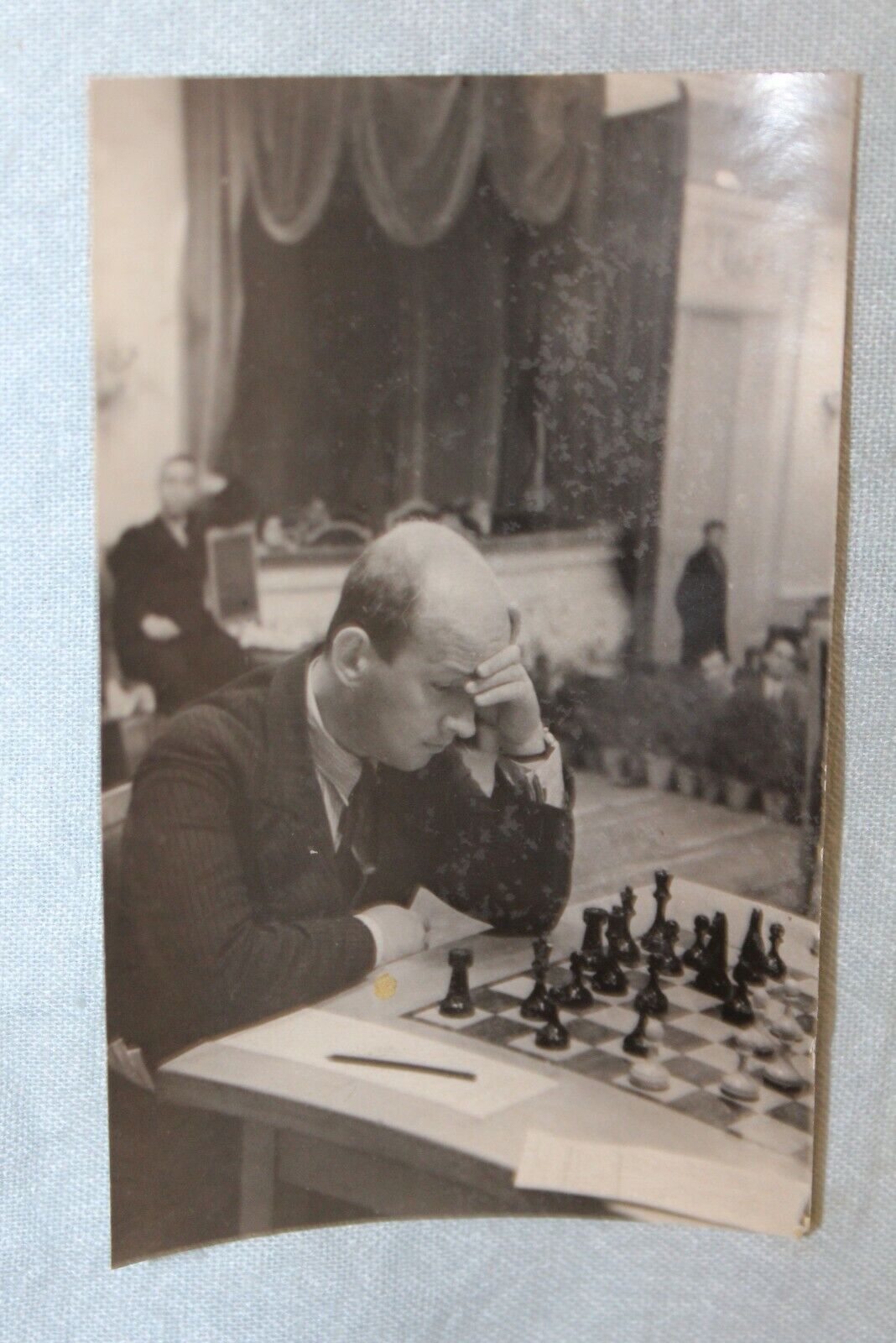eBay items
-
35.00 $
VLADIMIR KRAMNIK. SELECTED GAMES OF THE 14TH WORLD CHESS CHAMPIONPublisher: Russian CHESS House Author(s): Guliev Language: Russian Size: Normal Volume: 440 Binding: Solid DateOfIssue: 2015 Description: The work of Vladimir Kramnik is a separate big chapter. in the annals of world chess. Universality of talent allowed him for a long career to create a lot of masterpieces, revealing the different facets of the struggle behind the chessboard. International grand master and experienced coach Sarhan Gu- ly subjected the party of the 14th world champion to a comprehensive ana- Liza, taking into account both the earlier comments of Kramnik himself and other researchers, and the achievements of modern com- the computer method. Being a creative portrait of one of the the most outstanding chess players of our day, the book also co- keeps information and recommendations of educational nature. For a wide range of chess fans.ELECTED GAMES OF LEVON ARONYAN PUBLISHER: RUSSIAN CHESS HOUSE Selected parties of Levon Aronyan ISBN: 978-5-94693-372-8 Publisher: Russian CHESS House Author(s): Emelin Language: Russian Size: Normal Volume: 384 Binding: Solid Series: Great chess players of the world DateOfIssue: 2015 Description: The outstanding grandmaster of modern times Levon Aronyan has for many years kept the second line in the world rating list with ELO more than 2800! Let's try to follow along with the author, the famous grandmaster, the way from the first children's victories of Levon to today's peaks. Having studied the detailed and qualitatively commented in the book of the party, you will necessarily go to a new level of understanding chess, learn many new ideas and strengthen your game.
-
35.00 $
Author: Y. Karahan Title: Basics of Refereeing in Chess Published: Moscow 1974 Binding: Softback Language: Russian Pages: 188 With the gift inscription from Y. Karahan L. P. Garkunov to V. Baturinskiy: “ To dear Viktor Davidovich Baturinskiy – glorious chief of Soviet chess players, continuer and guide of the immortal ideas of N. V. Krylenko. For the good memory about our meetings at the chess board”. The book is from the library of V. Baturinskiy. Viktor Davidovich Baturinskiy - Soviet chess functionary; international referee (1984). Chairman of the chess section of the Moscow city Council of trade unions (1934-1935), the Chess Council of the Central Committee (1955-1957), Deputy Chairman of the Chess Federation of the USSR (1974-1986). Director of the USSR Central Committee (1970-1981), head of chess Department (1971-1981) and head coach of chess (1981-1985) of the USSR sports Committee. Head of the Soviet delegation to the world championship matches (1978 and 1981); organizer of many all-Union and international competitions Арт ек22
-
35.00 $
Soviet Chess Book in Georgian: Author: M. Botvinnik Towards achieving the goal Published: Tbilisi, 1982 Binding: Soft Language: Georgian 352 pagesЕК 24 Mikhail Moiseyevich Botvinnik was a Soviet and Russian chess grandmaster and World Chess Champion for most of 1948 to 1963. Working as an electrical engineer and computer scientist at the same time, he was one of the very few players who achieved distinction in another career while playing top-class competitive chess. He was also a pioneer of computer chess.
-
35.00 $
Soviet Chess Book in Uzbek: Author: B. Turov Pearls of chess art Published: Tashkent, 1987 Binding: Hard Language: Uzbek 384 pagesЕК 26
-
35.00 $
Soviet Chess Book: Author: P. Savin In the world of chess combinations Published: Kishinev, 1981 Binding: Hard Language: Russian 248 pages Circulation: hard binding - 1000 copies, soft binding – 49000 copies.ЕК 25
-
35.00 $
Author: A. Gerbstman Title: Modern Chess Endgame Study Published: OGIZ Phizkultura I Turizm, 1937 Binding: Hardback Language: Russian Pages: 186 The book "Modern Chess Endgame Study" contains 200 selected works of Soviet and foreign etudes, published in the last few years. The book aims to give a number of creative sketches of the most prominent etude composers of our time and to acquaint wide chess circles with the main ideological lines of the chess etude of our days. For the convenience of presentation, the material in the book is not in chronological order: first, we are talking about the founders of modern etude creativity: Horvitz and Kling, Berger, Troitsky, Rink, V. and M. Platov and Kubbel; then the chess etude of the Soviet era is covered; finally, the most significant phenomena of etude life abroad are touched upon. Comments on etudes are given the most popular, emphasizing, along with specific etude moments, and moments associated with practical play.
-
35.00 $
Translators: S. Vanstein, A. Smirnov Title: Bled International Tournament Published: OGIZ Phizkultura I Turizm, 1934 Binding: Hardback Language: Russian Pages: 230 Game compilation with the theoretical review and description of rounds Арт ек19
-
35.00 $
Author: Lasker Title: Chess Game Tutorial Published: Moscow, 1937 Binding: Hardback Language: Russian Pages: 242 Emanuel Lasker (Emanuel) (1868 -1941) — German chess player and mathematician, representative of the positional school, second world chess champion (1894-1921). Lasker retained the title of world champion for twenty-seven years, which is a record achievement for chess, and continued to perform at the highest level until 68 years. Chess Game Tutorial by Lasker – is a classic of chess literature. Unlike many others, it covers a wide range of chess problems. M. Botvinnik wrote: The preparation Lasker for the competition was assisted by his versatility. He had no "taste", not IML style, he did everything equally strongly, equally well – in defense and in attack, in calm positions and violent complications, in the middlegame and in the endgame. The book is multifaceted and multicast. For fans and young chess players – a textbook for more experienced – a guide to creative and athletic growth. Lasker is not so much taught to play, how to think for themselves, including to question the judgment of even the recognized authorities. The textbook contains initial information about the game, examples illustrating the features of some situations, relevant at the time of writing information on the theory of openings in explanatory examples. The Chapter on combinations contains a collection of excellent examples from all stages of the game: the debut, the middle of the game and the end. The Chapter on positional play captivates with a qualitative overview of the history of chess. Examples are also relevant and instructive. Lasker was not even a witness, but the Creator of this stage of chess development and we can get information "live" from the source.
-
35.00 $
ORIGINAL SOVIET CHESS PHOTO FROM 12TH USSR CHESS CHAMPIONSHIP IN 1940 YEAR.Boleslavsky – Lilienthal Lilienthal winner of this tournament. 1940 SIZE OF THE PHOTO – 8,5 cm x 5,5 cm 12TH SOVIET CHESS CHAMPIONSHIP: This is a photograph from the famous 12th Soviet Chess Championship held in the Grand Hall of the Moscow Conservatory from September 4th through October 3rd, 1940. The 12th Soviet Chess Championship was truly a battle of the titans. Outstanding players such as Mikhail Botvinnik, Paul Keres, Vasily Smyslov, Alexander Kotov, Isaac Boleslavsky, Igor Bondarevsky, and Andre Lilienthal took part. This so-called "absolute championship" is rightfully considered one of the strongest USSR chess championships ever held. Here’s an excerpt from Mikhail Botvinnik’s memoirs. "It was a tough tournament. There were many participants and very few off-days. The Grand Hall of the Conservatory has excellent acoustics. The spectators behaved impudently, made a great deal of noise, and clapped all the time. The excellent acoustics only made matters worse. Supposedly, Sergei Prokofiev applauded Keres vigorously after the latter won a game. The other people in his box reprimanded him,, and then the composer remarked, "I have every right to express my feelings." Would my friend Mr. Prokofiev be happy if he were playing a trio and spectators applauding the violinist’s performance drowned out his piano piece? Chess players are in a worse position, though. A pianist can afford to play a few false notes amid booming applause, something a chess player isn’t allowed to do." The results of the 12th Soviet Chess Championship were truly sensational, since two young players, Andre Lilienthal and Igor Bondarevsky, came in first and second, respectively, leaving grandmasters Mikhail Botvinnik and Paul Keres, the tournament favorites, far behind. The unprecedented hype surrounding this tournament matched its historical significance. After all, the unofficial right to contend for the world championship crown, as well as the prestigious title of USSR champion were on the line. "The most difficult and most monumental tournament in which I’ve ever taken part has come to a close," Andre Lilienthal wrote. "I have no reason to be displeased with myself. First off, my win over Botvinnik himself wasn’t too bad. Secondly, I snatched what seemed to be an irrevocably lost point from Bondarevsky in the last round. Thirdly, I managed not to lose a single game. Fourthly, I wound up in the wonderful young company of Bondarevsky and Smyslov at the top of the leaderboard. A decisive match for the title of USSR champion is up next. I have to prepare thoroughly for it, which, first and foremost, means getting some much needed rest." Three months after the tournament was completed, on January 14th, 1991, the Soviet Committee on Physical Culture and Sports issued an order approving the tournament results and awarding Bondarevsky and Lilienthal, the tournament winners, grandmaster titles; however, this order was missing a key point, since it did not mention any sort of match between the two victors. That strange inconsistency came to light a month later when it was decided - through a behind-the-scenes power struggle - that one more tournament for the title of absolute USSR champion would be held, a tournament Mikhail Botvinnik won. PK7
-
35.00 $
ORIGINAL SOVIET CHESS PHOTO FROM 12TH USSR CHESS CHAMPIONSHIP IN 1940 YEAR. SIZE OF THE PHOTO – 7,5 cm x 5 cm 12TH SOVIET CHESS CHAMPIONSHIP: This is a photograph from the famous 12th Soviet Chess Championship held in the Grand Hall of the Moscow Conservatory from September 4th through October 3rd, 1940. The 12th Soviet Chess Championship was truly a battle of the titans. Outstanding players such as Mikhail Botvinnik, Paul Keres, Vasily Smyslov, Alexander Kotov, Isaac Boleslavsky, Igor Bondarevsky, and Andre Lilienthal took part. This so-called "absolute championship" is rightfully considered one of the strongest USSR chess championships ever held. Here’s an excerpt from Mikhail Botvinnik’s memoirs. "It was a tough tournament. There were many participants and very few off-days. The Grand Hall of the Conservatory has excellent acoustics. The spectators behaved impudently, made a great deal of noise, and clapped all the time. The excellent acoustics only made matters worse. Supposedly, Sergei Prokofiev applauded Keres vigorously after the latter won a game. The other people in his box reprimanded him,, and then the composer remarked, "I have every right to express my feelings." Would my friend Mr. Prokofiev be happy if he were playing a trio and spectators applauding the violinist’s performance drowned out his piano piece? Chess players are in a worse position, though. A pianist can afford to play a few false notes amid booming applause, something a chess player isn’t allowed to do." The results of the 12th Soviet Chess Championship were truly sensational, since two young players, Andre Lilienthal and Igor Bondarevsky, came in first and second, respectively, leaving grandmasters Mikhail Botvinnik and Paul Keres, the tournament favorites, far behind. The unprecedented hype surrounding this tournament matched its historical significance. After all, the unofficial right to contend for the world championship crown, as well as the prestigious title of USSR champion were on the line. "The most difficult and most monumental tournament in which I’ve ever taken part has come to a close," Andre Lilienthal wrote. "I have no reason to be displeased with myself. First off, my win over Botvinnik himself wasn’t too bad. Secondly, I snatched what seemed to be an irrevocably lost point from Bondarevsky in the last round. Thirdly, I managed not to lose a single game. Fourthly, I wound up in the wonderful young company of Bondarevsky and Smyslov at the top of the leaderboard. A decisive match for the title of USSR champion is up next. I have to prepare thoroughly for it, which, first and foremost, means getting some much needed rest." Three months after the tournament was completed, on January 14th, 1991, the Soviet Committee on Physical Culture and Sports issued an order approving the tournament results and awarding Bondarevsky and Lilienthal, the tournament winners, grandmaster titles; however, this order was missing a key point, since it did not mention any sort of match between the two victors. That strange inconsistency came to light a month later when it was decided - through a behind-the-scenes power struggle - that one more tournament for the title of absolute USSR champion would be held, a tournament Mikhail Botvinnik won. PK7
-
35.00 $
ORIGINAL SOVIET CHESS PHOTO FROM 12TH USSR CHESS CHAMPIONSHIP IN 1940 YEAR. SIZE OF THE PHOTO – 8,5 cm x 5,5 cm 12TH SOVIET CHESS CHAMPIONSHIP: This is a photograph from the famous 12th Soviet Chess Championship held in the Grand Hall of the Moscow Conservatory from September 4th through October 3rd, 1940. The 12th Soviet Chess Championship was truly a battle of the titans. Outstanding players such as Mikhail Botvinnik, Paul Keres, Vasily Smyslov, Alexander Kotov, Isaac Boleslavsky, Igor Bondarevsky, and Andre Lilienthal took part. This so-called "absolute championship" is rightfully considered one of the strongest USSR chess championships ever held. Here’s an excerpt from Mikhail Botvinnik’s memoirs. "It was a tough tournament. There were many participants and very few off-days. The Grand Hall of the Conservatory has excellent acoustics. The spectators behaved impudently, made a great deal of noise, and clapped all the time. The excellent acoustics only made matters worse. Supposedly, Sergei Prokofiev applauded Keres vigorously after the latter won a game. The other people in his box reprimanded him,, and then the composer remarked, "I have every right to express my feelings." Would my friend Mr. Prokofiev be happy if he were playing a trio and spectators applauding the violinist’s performance drowned out his piano piece? Chess players are in a worse position, though. A pianist can afford to play a few false notes amid booming applause, something a chess player isn’t allowed to do." The results of the 12th Soviet Chess Championship were truly sensational, since two young players, Andre Lilienthal and Igor Bondarevsky, came in first and second, respectively, leaving grandmasters Mikhail Botvinnik and Paul Keres, the tournament favorites, far behind. The unprecedented hype surrounding this tournament matched its historical significance. After all, the unofficial right to contend for the world championship crown, as well as the prestigious title of USSR champion were on the line. "The most difficult and most monumental tournament in which I’ve ever taken part has come to a close," Andre Lilienthal wrote. "I have no reason to be displeased with myself. First off, my win over Botvinnik himself wasn’t too bad. Secondly, I snatched what seemed to be an irrevocably lost point from Bondarevsky in the last round. Thirdly, I managed not to lose a single game. Fourthly, I wound up in the wonderful young company of Bondarevsky and Smyslov at the top of the leaderboard. A decisive match for the title of USSR champion is up next. I have to prepare thoroughly for it, which, first and foremost, means getting some much needed rest." Three months after the tournament was completed, on January 14th, 1991, the Soviet Committee on Physical Culture and Sports issued an order approving the tournament results and awarding Bondarevsky and Lilienthal, the tournament winners, grandmaster titles; however, this order was missing a key point, since it did not mention any sort of match between the two victors. That strange inconsistency came to light a month later when it was decided - through a behind-the-scenes power struggle - that one more tournament for the title of absolute USSR champion would be held, a tournament Mikhail Botvinnik won. PK7
-
35.00 $
ORIGINAL SOVIET CHESS PHOTO FROM 12TH USSR CHESS CHAMPIONSHIP IN 1940 YEAR. SIZE OF THE PHOTO – 8,5 cm x 5,5 cm 12TH SOVIET CHESS CHAMPIONSHIP: This is a photograph from the famous 12th Soviet Chess Championship held in the Grand Hall of the Moscow Conservatory from September 4th through October 3rd, 1940. The 12th Soviet Chess Championship was truly a battle of the titans. Outstanding players such as Mikhail Botvinnik, Paul Keres, Vasily Smyslov, Alexander Kotov, Isaac Boleslavsky, Igor Bondarevsky, and Andre Lilienthal took part. This so-called "absolute championship" is rightfully considered one of the strongest USSR chess championships ever held. Here’s an excerpt from Mikhail Botvinnik’s memoirs. "It was a tough tournament. There were many participants and very few off-days. The Grand Hall of the Conservatory has excellent acoustics. The spectators behaved impudently, made a great deal of noise, and clapped all the time. The excellent acoustics only made matters worse. Supposedly, Sergei Prokofiev applauded Keres vigorously after the latter won a game. The other people in his box reprimanded him,, and then the composer remarked, "I have every right to express my feelings." Would my friend Mr. Prokofiev be happy if he were playing a trio and spectators applauding the violinist’s performance drowned out his piano piece? Chess players are in a worse position, though. A pianist can afford to play a few false notes amid booming applause, something a chess player isn’t allowed to do." The results of the 12th Soviet Chess Championship were truly sensational, since two young players, Andre Lilienthal and Igor Bondarevsky, came in first and second, respectively, leaving grandmasters Mikhail Botvinnik and Paul Keres, the tournament favorites, far behind. The unprecedented hype surrounding this tournament matched its historical significance. After all, the unofficial right to contend for the world championship crown, as well as the prestigious title of USSR champion were on the line. "The most difficult and most monumental tournament in which I’ve ever taken part has come to a close," Andre Lilienthal wrote. "I have no reason to be displeased with myself. First off, my win over Botvinnik himself wasn’t too bad. Secondly, I snatched what seemed to be an irrevocably lost point from Bondarevsky in the last round. Thirdly, I managed not to lose a single game. Fourthly, I wound up in the wonderful young company of Bondarevsky and Smyslov at the top of the leaderboard. A decisive match for the title of USSR champion is up next. I have to prepare thoroughly for it, which, first and foremost, means getting some much needed rest." Three months after the tournament was completed, on January 14th, 1991, the Soviet Committee on Physical Culture and Sports issued an order approving the tournament results and awarding Bondarevsky and Lilienthal, the tournament winners, grandmaster titles; however, this order was missing a key point, since it did not mention any sort of match between the two victors. That strange inconsistency came to light a month later when it was decided - through a behind-the-scenes power struggle - that one more tournament for the title of absolute USSR champion would be held, a tournament Mikhail Botvinnik won. PK7
-
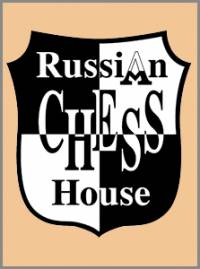 The life of a chess player in the system. Memories of the grandmaster
Author:
The life of a chess player in the system. Memories of the grandmaster
Author:
Averbah 45.00 $ -
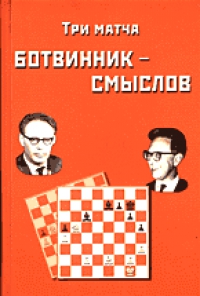 Три матча Ботвинник-Смыслов
Author:
Три матча Ботвинник-Смыслов
Author:
Botvinnik 45.00 $ -
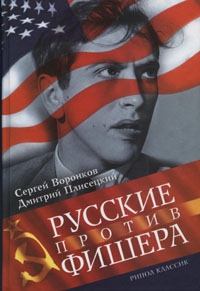 Russians vs Fisher
Author:
Russians vs Fisher
Author:
Voronkov 65.00 $ -
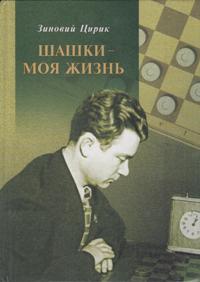 Checkers is my life
Author:
Checkers is my life
Author:
Ciric 87.50 $ -
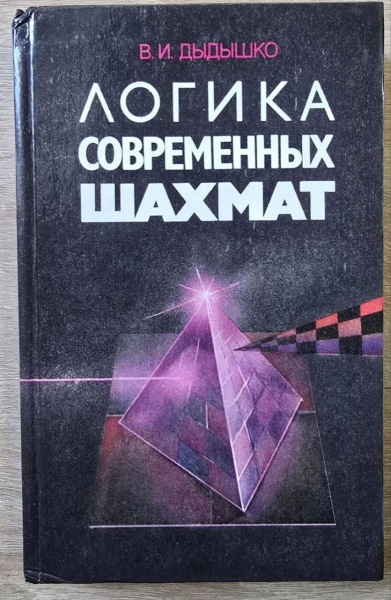 The logic of modern chess
Author:
The logic of modern chess
Author:
Dydyshko 72.50 $ -
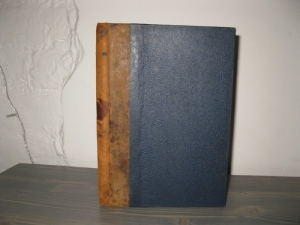 Siegbert Tarrasch. The Queen
Author:
Siegbert Tarrasch. The Queen
Author:
Tarrash 72.50 $ -
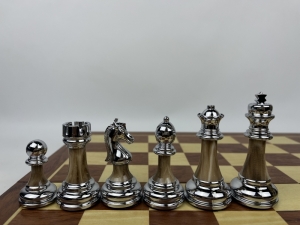 High quality acrylic metal heavy chess pieces with wooden board
202.50 $
High quality acrylic metal heavy chess pieces with wooden board
202.50 $
-
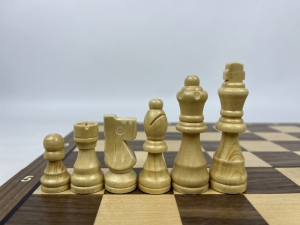 Wooden magnetic Staunton chess with a lock (silver)
56.25 $
Wooden magnetic Staunton chess with a lock (silver)
56.25 $
-
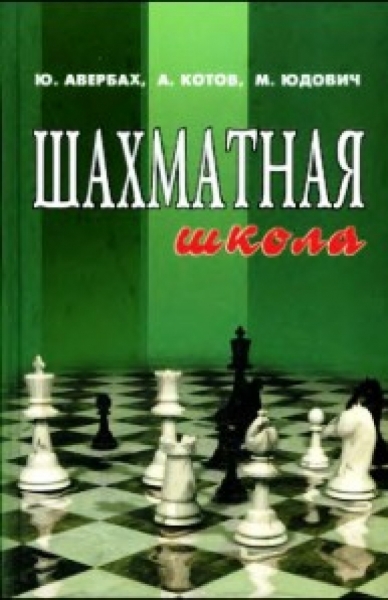 Chess school
Author:
Chess school
Author:
Averbah 15.00 $ -
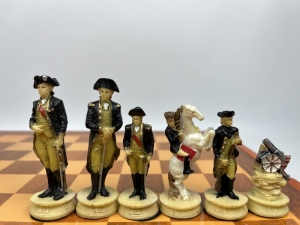 The chess set of The Chessmen. US war - Great Britain
325.00 $
The chess set of The Chessmen. US war - Great Britain
325.00 $
 Русский
Русский  Английский
Английский 